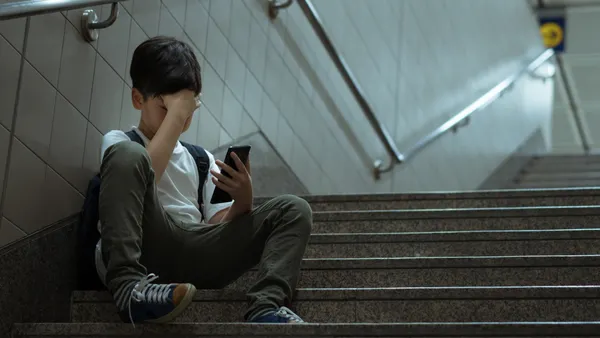Dive Brief:
- Nearly half of students in grades 10-12 said they use artificial intelligence tools for school and non-school activities, according to a June survey released Monday by ACT, the nonprofit that administers the college readiness exam. Of the 46% of respondents who reported using AI tools, nearly half said they had used them for schoolwork.
- Students using AI for school most often used the tools for language arts and social studies assignments. Students not using AI cited a lack of interest in the tools, distrust in the information provided, and that they did not know enough about AI.
- The survey also revealed that students with higher ACT composite scores were more likely to use AI tools than those with lower scores, revealing a need for schools to consider equitable access as AI technology evolves, the report said.
Dive Insight:
Among high schoolers who reported using AI tools, the most commonly used was ChatGPT. About 90% of those polled also said they had not considered using AI tools to write their college admissions essays, saying current AI tools have limitations and that using AI for this purpose would be dishonest and unethical.
“This new research gives us a better understanding of how students really feel about using these tools in the classroom and how it affects their work," said ACT CEO Janet Godwin, in a statement. "Students are already exploring how they can use AI, but there is real skepticism about AI’s ability to create work in which students can be confident.”
Educators are also exploring AI opportunities. A survey released in July by the Walton Family Foundation and Impact Research, a public opinion research and consulting firm, found 63% of teachers used ChatGPT, up from 50% in February. Student participation was more tempered but also increased in that time frame, from 33% to 42%.
The ACT survey polled 4,006 students. Among other findings, the survey revealed:
-
Of the students who used AI tools for school assignments, 63% reported that there were errors or inaccuracies in the generated responses.
-
Students had conflicting opinions about AI bans on school-issued devices: 42% said the tools should be banned, 34% said they should not be banned, and 23% did not know what should be done.
-
A majority of students — 62% — said their teachers did not allow the use of AI.







 Dive Awards
Dive Awards







